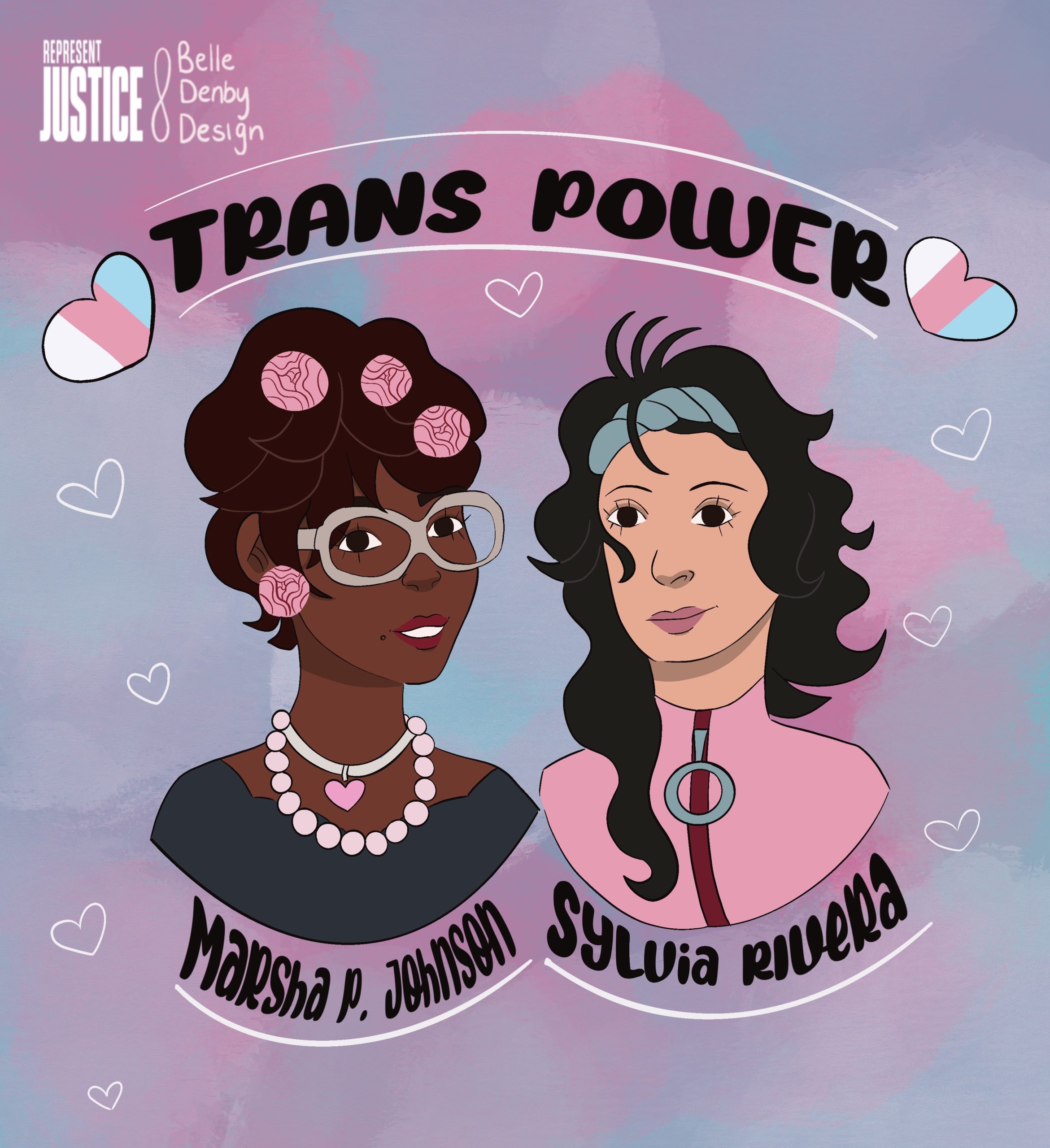LGBTQ leaders who paved the way for a new justice system

To help forge a path forward to a better, fairer justice system, we have to center those most vulnerable to its violence and oppression. Those in the LGBTQ community are three times more likely to be jailed than their straight, cisgender counterparts. And trans people are nearly four times more likely to experience violence at the hands of police than cisgender people.
This Pride month, we wanted to look back at just a few formidable leaders in the LGBTQ community who’ve laid a foundation for models of community care and safety.
Marsha P. Johnson and Sylvia Rivera

Marsha P. Johnson and Sylvia Rivera were pioneers in the fight for gay liberation. On June 28, 1969, the pair stood bravely alongside their peers during the Stonewall Riots — a response to the continued police harassment of queer and trans people.
In the wake of the Stonewall and the protests that followed, Marsha, a Black trans woman, and Sylvia, a Latina trans woman, became pivotal figures in the LGBTQ rights movement, and outspoken advocates for the care and protection of trans people.
Marsha and alongside Sylvia established the Street Transvestite (now Transgender) Action Revolutionaries (STAR), a group committed to helping homeless transgender youth in New York City.
We can’t work to change our justice system without first acknowledging the leadership of Marsha, Sylvia and others who stood at the forefront of the gay liberation movement that emerged after Stonewall.

CeCe McDonald
We reflect on CeCe McDonald’s vulnerable decision to share her story with the world, bringing to light the dangers that Black trans women face, and how unequally the justice system treats them.
In 2011, she experienced a racist and transphobic attack by a man outside of a Minneapolis bar, and was sentenced to 41 months for defending herself. Her case made the public aware of just how precarious life can be for Black trans women. In 2016, the murder rate for Black trans women was more than 7 times higher than the general population.
Her experience also brought to light the treatment that trans people endure in prison. She was held in a men’s facility and denied crucial gender-affirming care during her time inside. Nearly 1 in 6 trans people have been incarcerated at some point in their lives.
CeCe was released in 2014, and became an activist for trans rights. A documentary about her life, produced by actress Laverne Cox, encouraged viewers to not only understand the conditions that trans women in the U.S. live under, but celebrated the resilience and leadership of Cece.

Miss Major
Miss Major has been a crucial leader in the trans rights movement, challenging state violence against trans people since the Stonewall Riots.
Born in Chicago in 1940, She used her experiences as a sex worker and survivor of Attica State Prison to mentor and support currently and formerly incarcerated trans people.
In 2005, she joined the San Francisco-based Trans Gender Variant and Intersex Justice Project (TGIJP) where she became executive director before retiring in 2015. The TGIJP advocates for incarcerated trans people.
Her activism has been recognized through awards, public accolades and a 2015 documentary about her life and work called “Major!”
Today, she’s still fighting for the freedom and safety of trans women through the Griffin-Gracy Educational Retreat & Historical Center, or House of GG. The House of GG supports and nurtures trans women of color in the South through training and skill-building tools for activists and community leaders.
To change our justice system, we have to center the most vulnerable. Miss Major has offered a blueprint for such activism.
